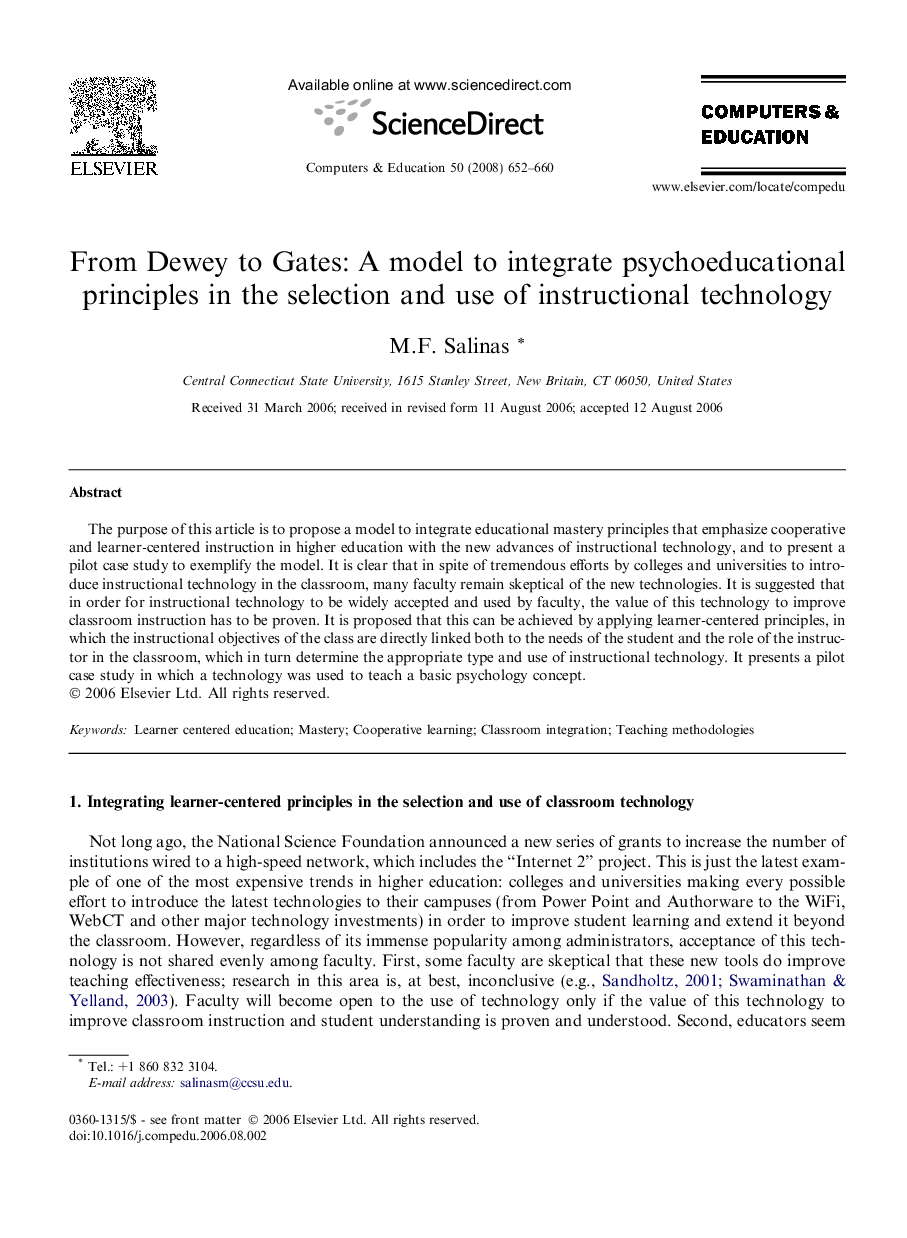| Article ID | Journal | Published Year | Pages | File Type |
|---|---|---|---|---|
| 349647 | Computers & Education | 2008 | 9 Pages |
The purpose of this article is to propose a model to integrate educational mastery principles that emphasize cooperative and learner-centered instruction in higher education with the new advances of instructional technology, and to present a pilot case study to exemplify the model. It is clear that in spite of tremendous efforts by colleges and universities to introduce instructional technology in the classroom, many faculty remain skeptical of the new technologies. It is suggested that in order for instructional technology to be widely accepted and used by faculty, the value of this technology to improve classroom instruction has to be proven. It is proposed that this can be achieved by applying learner-centered principles, in which the instructional objectives of the class are directly linked both to the needs of the student and the role of the instructor in the classroom, which in turn determine the appropriate type and use of instructional technology. It presents a pilot case study in which a technology was used to teach a basic psychology concept.
